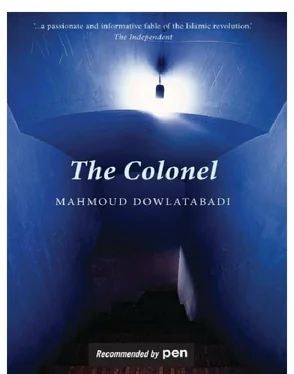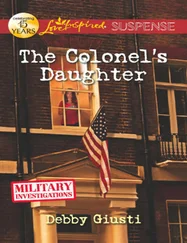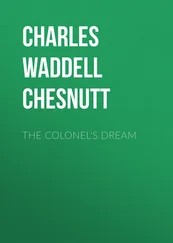“Were you an officer, colonel?”
“ Yes… I was.”
“If you want to take the body and bury it yourself, you have to make a contribution to our funds.”
“I see… of course.”
“Everything is ready. Two men will accompany you and stay with you until the end of the funeral. Kindly sign here, and here…
“Yes… kindly… certainly… yes sir!”
I think I was saying earlier that for a long time now I’ve given up expecting any good news. But is it too much to ask that they don’t give people bad news at such an awful time and in such a dreadful place? Well now, at this time of night, how can I bring more disgrace on myself? Of course…
Of course, the colonel knew full well that the point of dragging him there at that ungodly hour was to ensure that the whole matter was over and done with by dawn. Anyone with half a brain understands certain things without needing to have them spelt out. It made sense to cooperate with the court officials and not ask awkward questions. the colonel had learned and inwardly digested that Parvaneh’s funeral had to take place without any fuss and in secret and that the first step in this direction would be to stop up his own sobbing and try instead to conduct himself in a calm, dignified and becoming manner with a certain degree of meekness and submission, while somehow standing firm. In sum, he did what was required of him. In any case, their clipped tones and matter-of-fact attitude scotched any thoughts of extravagant mourning. So, instead of getting worked up, the colonel just stood there for a while, stunned.
Unable to find a pay desk, he came back to the snooker table and fished out all the notes he had in his wallet, of small and large denominations and, not knowing exactly how much he owed, slapped the whole bundle down on the green baize. With any luck, that would settle the matter. But what still niggled the colonel was that he had made a mistake about the snooker business. About thirty years ago — or was it even longer? — around the time of the Mossadeq affair, one autumn afternoon he had gone to a snooker hall with one of his fellow officers, who not long after had been shot. They were both lieutenants and were strolling along Lalezar Avenue 8when his friend suggested they go in and play a couple of frames. the colonel knew nothing about snooker and, not surprisingly, lost. But he could vividly recall every detail of the hall, with its green baize tables, the brightly coloured balls, the perfectly formed wooden triangles, the finely turned cues, the little pieces of chalk and the empty lemonade bottles, and his friend telling him that the game had originally come from Russia. And so he approached the man sitting behind the table and said, as if he were making a confession:
“I made a mistake… a mistake… forgive me; I forgot that I did actually play snooker once.”
“I beg your pardon?”
“Nothing, sir… nothing… it just came out. You see, I just can’t help saying things sometimes. Something in me makes me want to rake over all my past sins and tell someone about them.”
Somewhat taken aback, the man behind the table stared blankly at the colonel, looking long and hard at his face as if there was something odd about it. Realising that the man hadn’t the faintest idea what he had been talking about, the colonel turned away. He could not possibly understand what was going through the colonel’s mind and why he was talking in such a random fashion. He was sure that if the fellow had been in his shoes, he would have started thinking about things, too, and would have reflected on his past and would have tried to find the reasons for his sins and, at least, would have undergone some sort of self-examination.
What possible reason can there be for thinking that I have sinned in the past and that I am now being punished for it? How can anyone else possibly understand how, with every breath and with every step, I am drowned and suffocated by a feeling of guilt? It has got such a grip on me that I feel that my entire existence is under question. It’s so powerful that I don’t know what to do with myself. It’s got to the point where I imagine I am being followed around by a pair of invisible policemen who watch everything I do. I suppose I can be thankful that, since my stomach ulcers, I’ve given up drinking. And after killing my wife, I’ve lost all interest in women. So there’s no danger of me even looking at one or, God forbid, disgracing myself by falling for her charms. I’m not involved in any business or wheeler dealing, so I’m not mixed up in any thieving or swindling. As to what I live on, I’m drawing on a little nest-egg that my sons and I put aside. If anyone wants to investigate me, they’ll find that I’ve not taken even so much as a packet of cigarettes off my daughter, now the wife of Qorbani Hajjaj. Nor have I ever left Yousef Noqli’s teahouse without paying for my glass of tea. I don’t believe in living on tick. And don’t even get me started on my setar-playing. I used to play all the time and I still want to play, but my hands are now so unsteady that I can’t control the thing. I haven’t touched it for years now, and it just sits there in its old case on the wall, with dust as thick as your finger on it. Even the policemen didn’t react when they saw it. What else? Two important things: I have committed two mortal sins in my life. One was killing my wife and the other was disobeying the order to join the Dhofar campaign. 9I killed my wife, that’s true, and I didn’t go to Dhofar, that’s also true.
Why should I have cared that the British didn’t want to leave the Sultan at the mercy of some rabble of barefooted peasants? Why should I care that they wanted to give us the honour of being their comrades-in-arms and saddle the Shah with the costs of the campaign? I just knew that I had to say no, and I did exactly that.
The man behind the green baize table suddenly got up. Holding his stomach in, he stood bolt upright. His new tone showed that he was beginning to get irritated: “Well, what are you waiting for, it’s nearly morning?”
The young men sprang into action. One of them took the colonel by a scrawny elbow and spun him round, while another shoved the receipt for the money into the colonel’s coat pocket:
“All ready, colonel.”
“I know, Sir. I know.”

“Dhofar is an important and prestigious posting, colonel! It is a mark of the esteem in which His Imperial Majesty holds patriotic officers like you. I congratulate you.”
“ Sir, I…”
“Good luck, colonel!”
“It’s just that I still have to sort out a family problem, sir, as you are aware.”
“Put it from your mind, colonel. There is no getting out of it. That’s that.”
“But, General, it’s my wife…”
“You must consider the consequences, colonel, since she shares your name. Don’t forget that your wife comes from a very prominent family…”
“But, Sir, I am just a simple soldier…”
“We are all soldiers, colonel. Haven’t I made myself clear?”
It was night when they summoned the colonel to headquarters. Night is when crimes are committed, he thought, and night is also when they are planned and the evidence is buried. Criminals fear the light of day and try to wash the evidence off their hands before dawn and hide their guilty consciences from their fellow men. And so it was, that night, that the colonel decided on crime. He would absolutely not obey the order of posting. As he took the written order from the general’s puffy white fingers, he decided to kill his wife. He could not bring himself to fly to Dhofar to slaughter a bunch of hungry rebels on the grounds that they were ‘a Soviet threat.’ He could no longer go on living the lie that he had been forced to live.
Читать дальше













